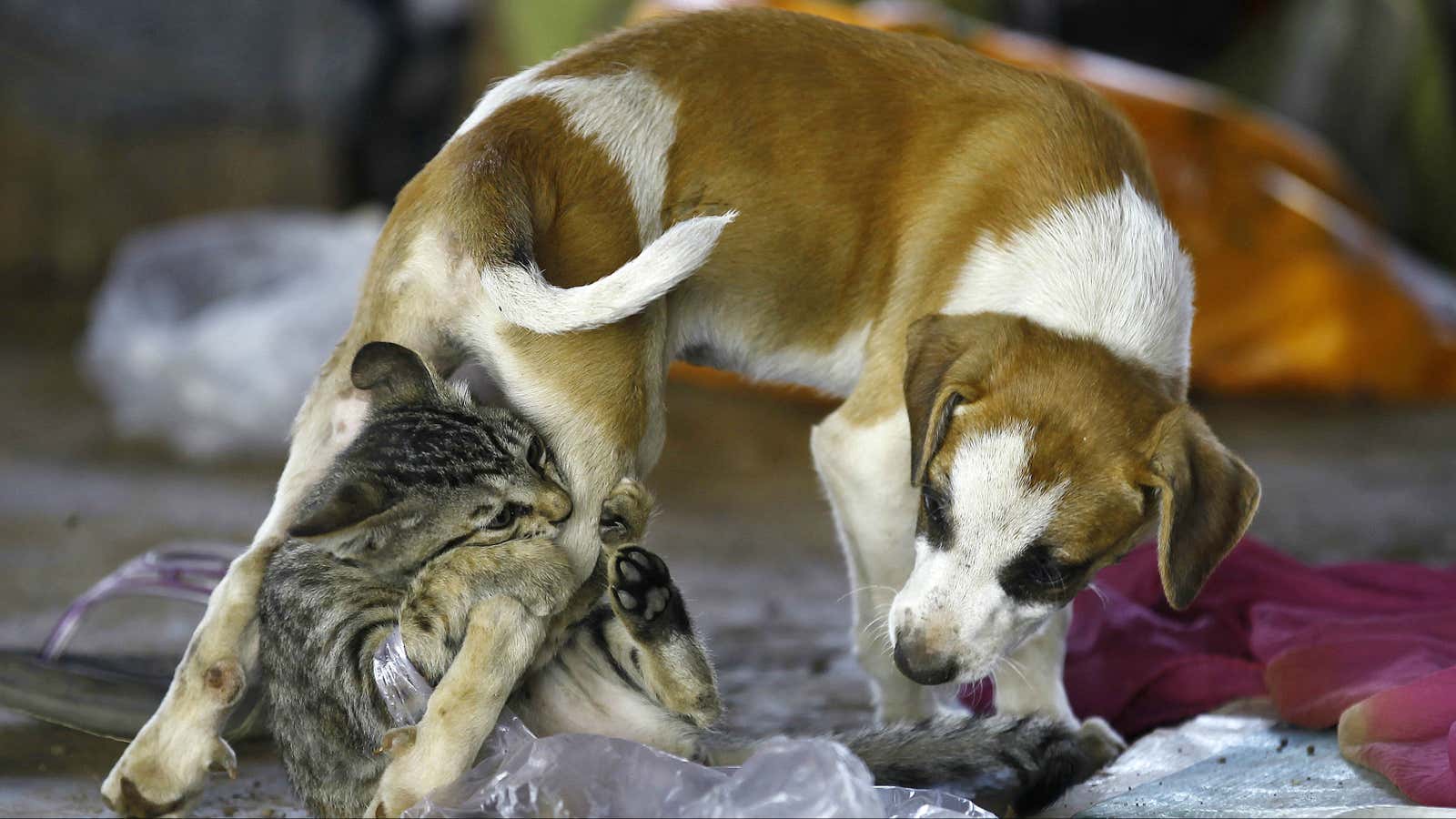The age-old rivalry between cats and dogs started long before their stints as domesticated animals.
New research published (paywall) in the journal PNAS by researchers at the University of Gothenburg in Sweden, the University of Lausanne in Switzerland, and the University of São Paulo shows that before climate change, cats and dogs were duking it out for food some 20 million years ago—and cats won.
When various species of cats first appeared in North America, there was a steep decline in the number of canine species in the same area, explained Daniele Silvestro, a computational biologist at the University of Gothenburg and lead author of the paper, in an email to Quartz. Ancient canine species were becoming extinct, and failed to evolve into new species. Simultaneously, cats were thriving and diversifying into more species. Silvestro and his team concluded that the felines were out-competing dogs for food.
The scientists looked at more than 2,000 fossils starting from 40 million years ago from several types of ancient animals—including other carnivores like bears and the now-extinct bear-dog and false-sabertooth cat—that could have contributed to the evolution of species of canids (ancestors of modern-day dogs). They looked at the way animals’ body-sizes evolved, natural climate change, and competition for food among all of these animals. It was the direct competition for food with cat-like species that led to ancient dogs’ demise, more so than climate change (though humans weren’t around to accelerate it back then). ”While several groups of carnivores might have competed with dogs, felids [cats] are the groups that shows by far the strongest evidence of competition,” Silvestro said.
Human-induced climate change plays a much larger role in the potential extinction of species now than does competition for food. According to scientists at Duke University, current extinction rates are 1,000 times higher (paywall) than they would be without human activity. Fortunately for domesticated cats and dogs, their human owners are now the ones charged with competing for food.
